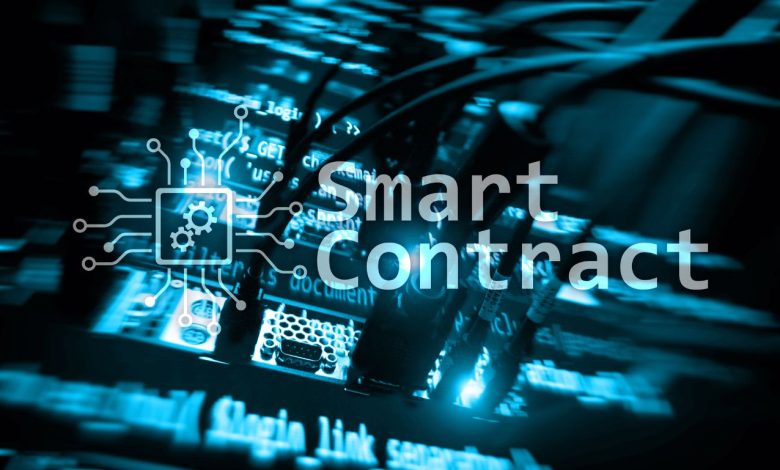
Smart contracts are revolutionizing how we think about digital agreements and automated processes. These self-executing contracts with terms directly written into code are transforming everything from financial transactions to supply chain management. We’re witnessing a fundamental shift away from traditional systems that rely on centralized authorities. This article explores the technical foundations, real-world applications, and future potential of innovative contract technology.
Programming Languages for Smart Contracts
Solidity dominates the smart contract development landscape, powering the majority of applications on Ethereum and other blockchain platforms. Created specifically for the Ethereum Virtual Machine, Solidity enables developers to write complex, self-executing agreements that automatically enforce terms without the need for intermediaries.
Rust is gaining significant traction, particularly on newer blockchain networks, such as Solana. Its memory safety features and performance capabilities make it ideal for high-throughput applications. Many developers appreciate Rust’s ability to prevent common programming errors that could lead to vulnerabilities in smart contracts.
Vyper offers another approach, prioritizing security and simplicity over flexibility. Unlike Solidity’s more complex syntax, Vyper’s design philosophy emphasizes readability and reduces the risk of coding mistakes. Financial applications often favor Vyper because security takes precedence over advanced features.
Go and JavaScript are emerging as viable options for specific blockchain platforms. Hyperledger Fabric supports Go contracts, while some newer networks accept JavaScript-based smart contracts. This diversity allows developers to leverage existing skills rather than learning entirely new programming paradigms.
Use Cases of Smart Contracts

Decentralized finance represents the most mature innovative contract application today. Protocols like Uniswap process billions in trading volume through automated market makers, eliminating the need for traditional intermediaries. These systems enable peer transactions without centralized exchanges, reducing transaction costs and increasing accessibility.
Insurance industry applications are expanding rapidly. Smart contracts can automatically process claims based on verifiable data sources, eliminating manual processes and reducing operational costs. Crop insurance, for example, can trigger payouts based on weather data, streamlining what was once a lengthy approval process.
Real estate transactions benefit enormously from blockchain-enabled smart contracts. Property transfers, rental agreements, and escrow services can operate automatically once predetermined conditions are met. This reduces fraud risk and accelerates transaction times from weeks to hours.
Supply chain management gains unprecedented transparency through immutable records. Companies can track products from manufacturing to delivery, ensuring authenticity and enabling rapid response to quality issues. Walmart uses blockchain technology to trace food contamination sources in minutes rather than days.
Blockchain Gaming
Gaming represents one of the most exciting frontiers for smart contract innovation. Players truly own their game assets as non-fungible tokens, enabling transfer between different virtual worlds. This creates entirely new economic models where gaming achievements translate into real-world value.
Play-to-earn mechanisms reward skilled players with crypto assets that hold actual market value. Axie Infinity demonstrated the potential of this concept by enabling players in developing countries to earn a substantial income through gameplay. Smart contracts ensure transparent reward distribution, eliminating the need for game developer interference.
Decentralized autonomous organizations are emerging within gaming ecosystems. Players can vote on game development decisions, rule changes, and resource allocation through blockchain-based governance systems. This democratizes game development, creating deeper player investment in virtual worlds.
Cross-game interoperability becomes possible when assets exist as smart contracts. A sword earned in one game could function in another, creating rich, interconnected gaming universes. This vision requires standardization but promises revolutionary gaming experiences.
Advantages of Smart Contracts
Automated execution eliminates human error and bias from contractual agreements. Once deployed, smart contracts execute precisely as programmed, removing subjective interpretation and reducing disputes. This reliability proves particularly valuable in financial markets where precision matters most.
Cost reduction stems from removing intermediaries and automating processes. Traditional contracts often require the services of lawyers, notaries, and other third parties, which add time and expense. Smart contracts reduce these costs by up to 70% in specific applications while processing transactions more efficiently.
Global accessibility democratizes financial services for underbanked populations. Anyone with internet access can interact with decentralized applications without traditional banking relationships. This opens up investment opportunities and economic tools to millions who were previously excluded from formal financial systems.
Enhanced Transparency
Public blockchains make every transaction visible and verifiable by anyone. This unprecedented transparency enables audit trails that traditional systems cannot provide. Regulatory compliance becomes easier when every action is permanently recorded and publicly accessible.
Code transparency enables security researchers to identify potential vulnerabilities before they are exploited. Open-source smart contracts benefit from community review, often making them more secure than proprietary alternatives. This collective scrutiny improves overall ecosystem security.
Real-time monitoring capabilities enable immediate detection of unusual activity. Analytics tools can track smart contract behavior patterns and alert users to potential issues. This proactive approach to security represents a significant advancement over-reactive traditional systems.
Challenges and Limitations
Smart contract failures can result in permanent asset loss due to blockchain immutability. Unlike traditional software errors that can be rolled back, blockchain-based mistakes often cannot be reversed. The 2016 DAO hack demonstrated how coding vulnerabilities can drain millions of dollars.
Scalability remains a significant barrier to mainstream adoption. Ethereum processes only about 15 transactions per second, significantly below the capacity of credit card networks. High transaction fees during network congestion make small transactions economically unfeasible.
User experience complexity prevents widespread adoption among non-technical users. Managing private keys, understanding gas fees, and interacting with decentralized applications require technical knowledge that most consumers lack. This usability gap must be addressed for mass market success.
Smart contract vulnerabilities persist despite improvements in development practices. Reentrancy attacks, integer overflows, and logic errors still plague many applications. Professional auditing helps but cannot eliminate all risks, especially in rapidly evolving codebases.
Regulatory Concerns
Legal uncertainty surrounds the enforceability of smart contracts in traditional court systems. While contracts execute automatically, disputes about interpretation or external circumstances may still require legal intervention. Jurisdictional questions complicate enforcement across international borders.
Securities regulations create compliance challenges for tokenized assets and decentralized finance protocols. Regulators struggle to apply traditional financial rules to programmable money and automated market makers. This uncertainty inhibits institutional adoption and innovation.
Anti-money laundering requirements conflict with the privacy features of blockchain technology. Financial institutions must implement know-your-customer procedures that may be impossible with fully decentralized systems. Balancing privacy and compliance remains an ongoing challenge.
Tools and Technologies Optimizing Smart Contracts
Development frameworks like Truffle and Hardhat streamline the coding and testing process. These tools provide templates, testing environments, and deployment scripts that reduce development time and improve code quality. Integrated development environments (IDEs) designed specifically for blockchain development are becoming increasingly sophisticated.
Formal verification tools mathematically prove contract correctness before deployment. Companies like Certora and Runtime Verification offer services that can identify potential bugs through mathematical analysis rather than traditional testing. This approach provides higher confidence in contract security.
Data-Driven Capabilities with Reactive Network
Reactive Network introduces innovative approaches to smart contract responsiveness. Traditional contracts only execute when explicitly called, but reactive contracts can automatically respond to changing conditions. This capability enables the development of more sophisticated financial instruments and the implementation of automated trading strategies.
Event-driven architecture enables smart contracts to respond to complex, multi-chain scenarios. Cross-chain bridges and interoperability protocols benefit from reactive capabilities that can respond to events across different blockchain networks. This flexibility supports the multi-chain future many experts predict.
What is the Role of Smart Contracts in Decentralized Finance?
Automated market makers revolutionized cryptocurrency trading by replacing traditional order books with algorithmic pricing. Uniswap and similar protocols utilize smart contracts to maintain liquidity pools and execute trades without relying on centralized market makers. This innovation created more efficient and accessible trading mechanisms.
Lending protocols enable peer-to-peer borrowing without the need for traditional financial institutions. Compound and Aave use smart contracts to automate interest calculations, collateral management, and liquidation procedures. Borrowers access capital, while lenders earn a yield on their digital assets.
Yield farming strategies combine multiple DeFi protocols to maximize returns on crypto investments. Smart contracts automatically optimize capital allocation across different opportunities, rebalancing positions as market conditions change. This automation enables sophisticated investment strategies previously available only to institutional investors.
What is the Future of Smart Contracts?

Integration with artificial intelligence will create more responsive and adaptive contracts. Machine learning algorithms could optimize contract parameters based on historical performance and changing market conditions. This combination of AI and blockchain technology promises unprecedented capabilities for automation.
Quantum computing poses both opportunities and threats to smart contract security. While quantum computers could break current cryptographic methods, they also enable new types of secure multi-party computation. The blockchain industry is already researching quantum-resistant cryptography.
Mainstream adoption depends on solving current usability and scalability challenges. Layer-2 solutions, improved user interfaces, and regulatory clarity will determine whether smart contracts achieve widespread commercial use. The technology’s potential is clear, but practical implementation remains the key hurdle.
Conclusion
Smart contracts represent a paradigm shift toward programmable, trustless systems that operate without the need for traditional intermediaries. From decentralized finance to supply chain management, these self-executing agreements are creating new possibilities for digital interactions. While challenges around scalability, regulation, and user experience remain, continued innovation is addressing these limitations.
The next wave of decentralized applications will likely combine smart contracts with artificial intelligence, improved user interfaces, and enhanced scalability solutions. Financial institutions, technology companies, and entrepreneurs are investing heavily in the potential of this technology.
FAQs
What are smart contracts?
Smart contracts are self-executing digital agreements with terms written directly into code, automatically enforcing conditions without the need for intermediaries.
How do smart contracts work?
Smart contracts execute automatically when predetermined conditions are met, using blockchain networks to ensure transparency and immutability.
What programming languages are used for smart contracts?
Solidity is most common, followed by Rust, Vyper, Go, and JavaScript, depending on the blockchain platform.
Are smart contracts secure?
Smart contracts can be secure when properly audited, but vulnerabilities in code can lead to permanent asset loss due to blockchain immutability.
What industries use smart contracts?
Finance, insurance, real estate, gaming, and supply chain management are leading the way in smart contract adoption across various use cases.
